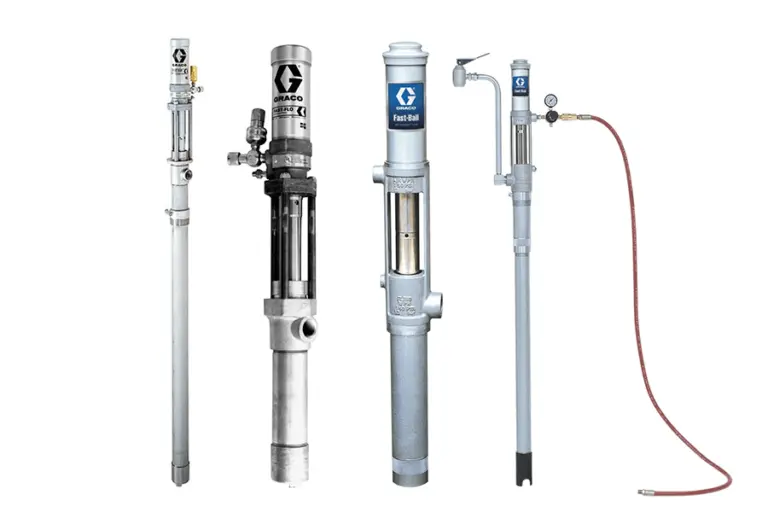In the dynamic landscape of fluid management, achieving excellence is not just a goal; it’s a necessity. Efficient handling of liquids is critical across various industries, from manufacturing and agriculture to pharmaceuticals and beyond.
In this exploration of fluid handling excellence, we delve into the world of graco pumps solutions – the unsung heroes that ensure the seamless flow of liquids in diverse applications.
The Essence of Fluid Handling Excellence
At the heart of every successful fluid management system lies the essence of excellence in handling liquids. It goes beyond the primary transportation of fluids; it encapsulates precision, reliability, and adaptability. Achieving fluid handling excellence optimizes processes, minimizes downtime, and ensures equipment longevity.
Precision in Motion
Pumping solutions form the backbone of precision in fluid handling. Whether it’s transferring chemicals in a laboratory or distributing water in an industrial setting, the accuracy of fluid movement is paramount. Modern pumping technologies employ advanced mechanisms, such as variable speed drives and intelligent control systems, to ensure precise flow rates and volumes.
Reliability under Pressure
In demanding industrial environments, reliability is non-negotiable. Pumping solutions designed for excellence can operate seamlessly under high pressures and extreme conditions. Robust materials, stringent quality control, and innovative engineering contribute to the reliability of these systems, offering peace of mind to industries where downtime is not an option.
Adaptability to Varied Applications
Fluid handling is not a one-size-fits-all scenario. Different industries, processes, and liquids require tailored solutions.
Fluid handling excellence is synonymous with adaptability, from diaphragm pumps for sensitive fluids in the pharmaceutical sector to centrifugal pumps for large-scale water movement in agriculture. Versatile pumping solutions can be customized to meet the unique demands of each application, ensuring efficiency across the board.
Advanced Pumping Technologies: Pushing the Boundaries
As industries evolve, so do the challenges associated with fluid handling. The need for efficiency, sustainability, and reduced environmental impact has spurred the development of cutting-edge pumping technologies. These advancements are reshaping the landscape of fluid management, setting new standards for excellence.
Smart Pumping Systems
The era of innovative technologies has reached the realm of pumping solutions. Smart pumps integrate sensors, data analytics, and automation to optimize performance and anticipate maintenance needs.
Predictive analytics enable proactive maintenance, minimizing downtime and extending the lifespan of equipment. These intelligent systems also contribute to energy savings, aligning with the global push towards sustainability.
Energy-Efficient Designs
In the pursuit of fluid handling excellence, energy efficiency is a crucial consideration. Modern pumping solutions incorporate design elements focused on minimizing energy consumption without compromising performance.
Variable speed drives, high-efficiency motors, and streamlined hydraulic designs contribute to significant energy savings, making these solutions reliable and environmentally responsible.
Environmental Sustainability
As industries increasingly prioritize sustainability, pumping solutions are adapting to meet these expectations. Environmentally friendly materials, reduced energy consumption, and incorporation of renewable energy sources are integral parts of fluid handling excellence. Handling fluids efficiently while minimizing environmental impact is a hallmark of a genuinely exceptional pumping solution.
Challenges and Innovations: Navigating the Complexities
Achieving fluid handling excellence has its challenges. However, it is through overcoming these challenges that innovation thrives. The dynamic nature of industries demands constant evolution, and pumping solutions are at the forefront of this transformative journey.
Corrosion Resistance and Material Innovation
One persistent challenge in fluid handling is the corrosive nature of certain liquids. Pumping solutions must withstand the corrosive effects of chemicals or abrasive materials. Innovations in materials, such as corrosion-resistant alloys and advanced polymers, are addressing this challenge, ensuring longevity and reliability in corrosive environments.
Precision in Microfluidics
In fields like biotechnology and pharmaceuticals, where precision is measured in microliters, the challenge lies in handling small volumes with utmost accuracy.
Microfluidic pumping solutions are emerging to meet these demands, offering precise control over tiny quantities of liquids. These innovations open new possibilities in medical research, diagnostics, and other applications where precision at the microscale is critical.
Integration of Industry 4.0 Technologies
The fourth industrial revolution, often called Industry 4.0, is characterized by integrating digital technologies into industrial processes. Pumping solutions are no exception to this trend.
The seamless integration of sensors, connectivity, and data analytics allows for real-time monitoring, remote control, and data-driven decision-making. This enhances operational efficiency and paves the way for a more connected and intelligent industrial ecosystem.
Conclusion: Navigating the Future of Fluid Handling
In fluid-handling excellence, pumping solutions play a pivotal role in shaping the future of industries. The journey involves a relentless pursuit of precision, reliability, adaptability, and a commitment to innovation.
As industries evolve and challenges emerge, tomorrow’s pumping solutions will continue redefining the benchmarks of efficiency and sustainability, ensuring the seamless flow of liquids in the most demanding environments. Excellence in fluid handling is not just a goal; it’s a continuous journey toward a more connected, efficient, and sustainable future.

